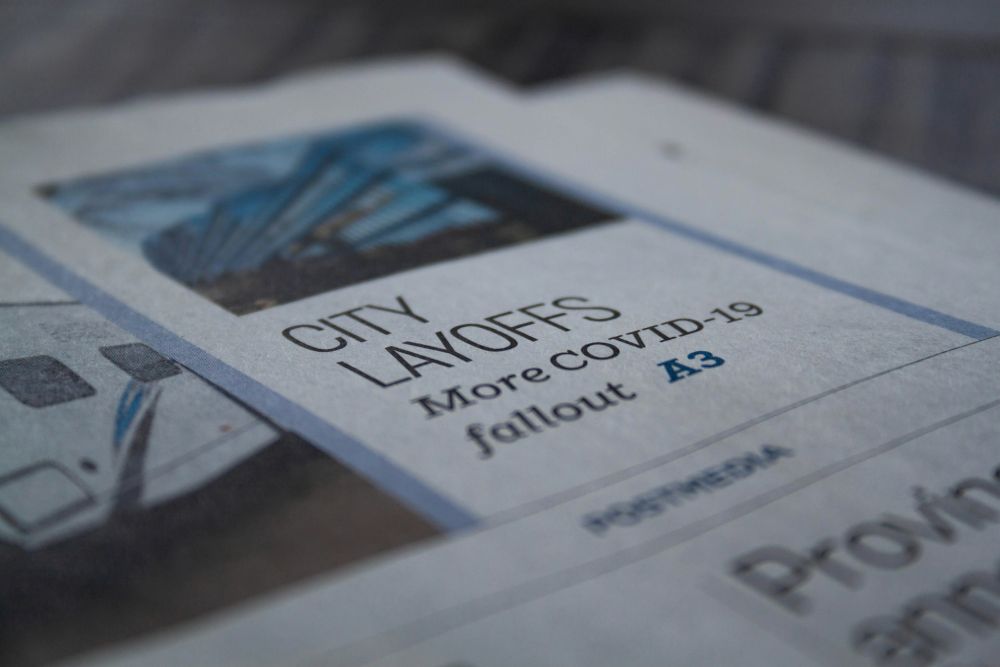I Survived A Company Layoff: How To Deal With The Guilt And Move Forward
“Hey man, I’m getting retrenched.” Halfway through my meeting, the Teams chat notification popped up on my phone with this message. It was from one of the few colleagues I genuinely considered a friend. It was so sudden and out of the blue, that I could barely process the information.
Moments later, as I made my way back to my desk, I saw a few people in the office packing up their bags and clearing their lockers. It was only 10am. The mood was sombre and few of them were even openly sobbing. A sense of dread crept over me as I logged in to my email and saw the open letter from our company CEO. I skimmed through the messages as phrases like “organisational changes”, “comprehensive review” and “closing non-scalable businesses” flew at me.
At that point only two thoughts crossed my mind. One, thank God I wasn’t laid off and holy crap, I just survived a layoff exercise. It was a strange mixture of emotions. On one hand, I was massively relieved. On the other hand, I felt sick to my stomach and really sorry for my co-workers who were let go. I spoke to a number of them in the immediate aftermath.
One had a newborn on the way, another just got the keys to their new home and just started renovations. A foreign colleague was in a precarious position as her work visa was tied to her job and she might have to leave the country if she couldn't quickly find employment. It all just felt terribly overwhelming.
Layoff survivor guilt is a real thing, especially knowing that some of my long-tenured colleagues were being retrenched, while I still have my job despite being a relative newbie. But the reality is that dealing with layoffs is an inevitability, no matter where you are in your career. Case in point: The recent retrenchment exercise at Mediacorp, where 93 positions are being made redundant.
So, how do you deal with surviving a retrenchment exercise, knowing that you might not be so lucky the next time it happens?
Acknowledge and validate your feelings
I think the most important first step is to take the time to self-reflect and to honour your feelings. Surviving a layoff can be disconcerting and reel you into a whirlwind of emotions. You shouldn’t be internalising the pain or sweep them under a rug.
It might make things worse as such negativity can creep into your attitude towards work moving forward. I spent a lot of time over the next few days talking to both my current and now ex-colleagues, whether it was offering my support or talking about our collective emotions.
The biggest takeaway was that I was not alone in this process. It’s okay to feel relief and also grief for your impacted coworkers. It’s alright to feel upset at the situation but also remind myself that I’m not to blame for it. Being honest and open definitely helped to validate my feelings better.
 IMAGE: UNSPLASH
IMAGE: UNSPLASH
Control the controllable
Speaking of which, one of the things that helped me come to terms with the situation was the fact that this was beyond my control. In fact, in hindsight, I wasn’t surprised. A number of tech giants announced thousands of job cuts in the last few years. Given the volatility in the employment market recently, especially in my industry, it was bound to happen eventually.
The fact that my organisation was able to hold off laying off its employees for so long speaks to the management’s commitment to exhaust all other avenues first. While I can’t predict external forces and market conditions, I can manage my attitude towards work.
 IMAGE: UNSPLASH
IMAGE: UNSPLASH
Clarify your current job responsibilities and expectations
This is especially crucial. With retrenchment comes a reorganisation in the corporate structure. Does this mean I have to take up the scope of work of my retrenched colleagues? Will my KPI change? What does the company see in terms of my career path?
These are all valid questions and I immediately sought a meeting with my supervisor to clarify these points. It helped to give me further clarity and reframe my expectations about my current role. Thankfully, in my case, I didn’t have to take on additional work. But I was able to understand why certain roles were phased out and what are the next steps I can take to chart a path in my career for the short and long term.
 IMAGE: UNSPLASH
IMAGE: UNSPLASH
Place your self-esteem in your own hands and not your organisation
This was also a reminder that I shouldn’t put all my eggs in one basket and tie my self-worth to my company. No organisation can guarantee you lifelong employment and that’s a cold, hard fact we all have to accept.
It was an opportunity to reframe my thoughts and find value in the profession as opposed to the place of employment. While the hope is that you will never be fired, these things can happen realistically and you will need to be prepared to bounce back if the worst case scenario transpires.
In the aftermath of the layoffs, I immediately updated my CV and started shopping around LinkedIn to see what other opportunities are out there. I even created a job alert on various employment portals to make sure I’m always aware of what’s available in the market. There’s a saying in the army that you should sweat in training so that you don’t bleed in war. I took that mentality with me to bounce back from this unfortunate episode.
Future proof your skills
Lifelong learning can sometimes feel like a mere buzzword but this whole situation reminded me of the importance of future-proofing my skills. You should always be looking to upgrade yourself and add to your skillset. In fact, I would say that in the last few years alone, I went from purely a writing job to social media management, digital marketing and now campaign management.
There are government programmes like SkillsFuture to help cater to mid-career workers. Seeing as how I took a part-time degree while working full-time, I am a firm believer that there is always an opportunity to improve myself. Looking ahead, surviving a company layoff was a timely reality check but also a nudge to sharpen my expertise so that I can be an asset at work, regardless of which company I’m employed under.
For the latest updates on Wonderwall.sg, be sure to follow us on TikTok, Telegram, Instagram, and Facebook. If you have a story idea for us, email us at [email protected].











